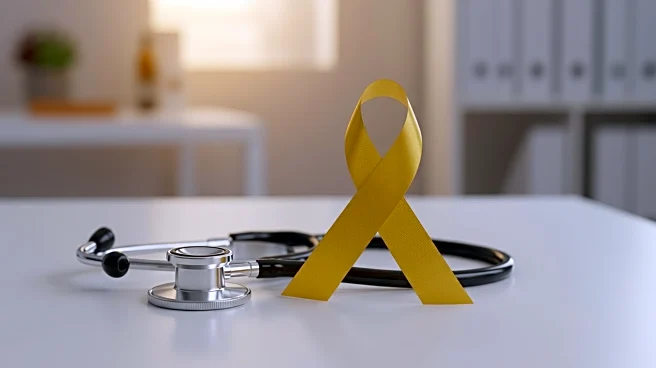What is the story about?
What's Happening?
Phil Knight, co-founder of Nike, and his wife, Penny Knight, have pledged $2 billion to the Oregon Health & Science University’s Knight Cancer Institute. This donation is recognized as the largest single contribution to a university in the United States. The funds are intended to enhance the institute's diagnostic capabilities, provide access to innovative clinical trials, and improve the overall patient experience. The Knight Cancer Institute, located in Portland, Oregon, has previously benefited from the Knights' philanthropy, including a $100 million gift in 2008 and a $500 million challenge grant in 2013.
Why It's Important?
This substantial donation underscores the Knights' commitment to advancing cancer research and treatment. By significantly boosting the resources of the Knight Cancer Institute, the donation is expected to accelerate breakthroughs in cancer diagnostics and therapies. This could have a profound impact on the medical community and patients nationwide, potentially leading to more effective treatments and improved survival rates. The donation also highlights the role of private philanthropy in supporting public health initiatives and advancing scientific research.
What's Next?
The Oregon Health & Science University plans to utilize the funds to expand its research capabilities and clinical trial offerings. This could attract top-tier researchers and clinicians to the institute, fostering an environment of innovation and collaboration. The donation may also inspire other philanthropists to contribute to similar causes, potentially leading to increased funding for cancer research across the country.
Beyond the Headlines
The Knights' donation may prompt discussions about the ethical implications of large private donations to public institutions. While such contributions can significantly advance research, they also raise questions about the influence of private donors on public health priorities. Additionally, the donation could set a precedent for other wealthy individuals to invest in healthcare and research, potentially reshaping the landscape of medical philanthropy.
















